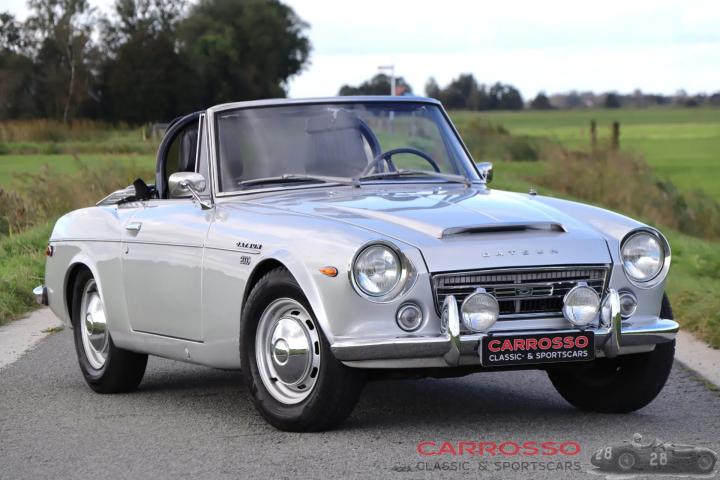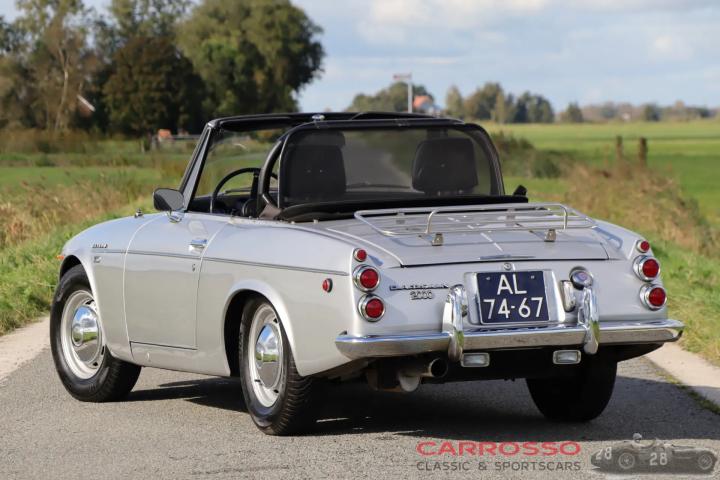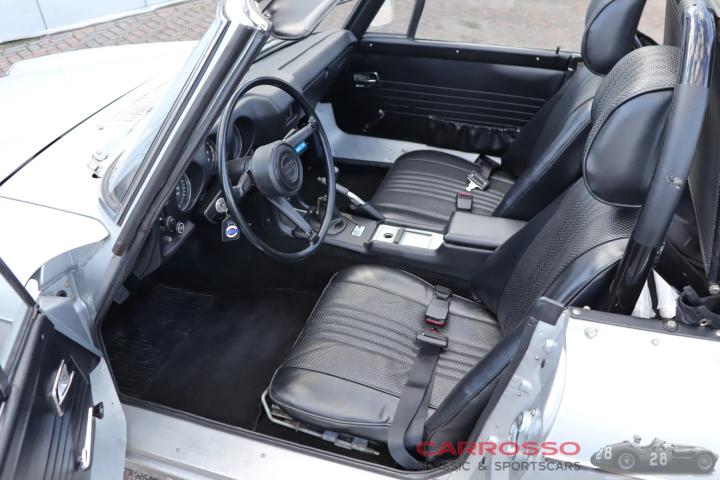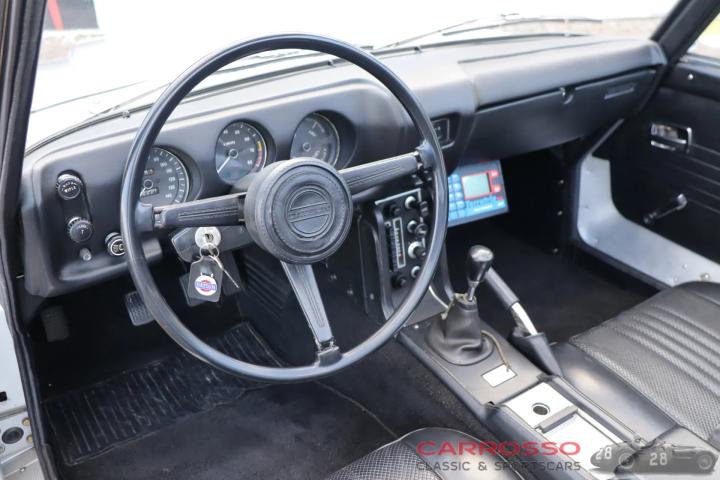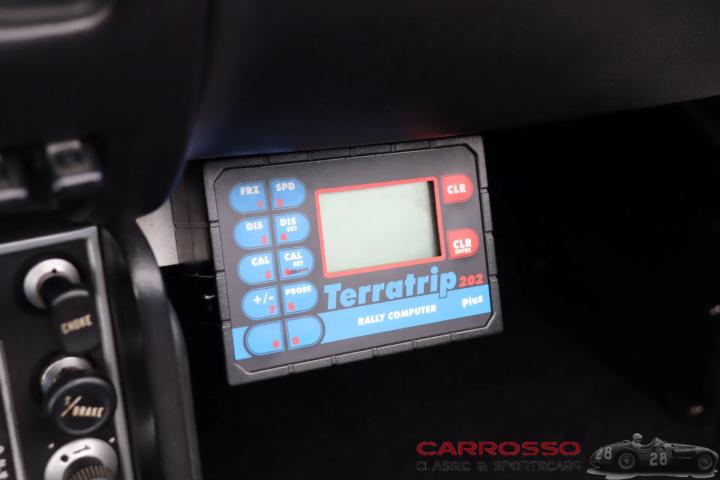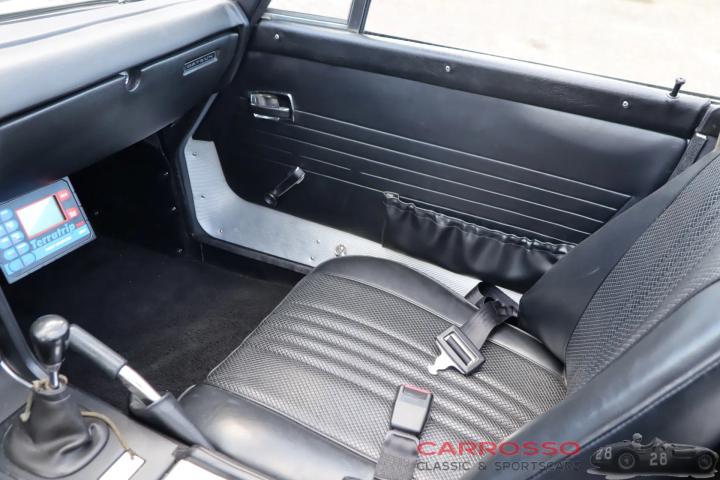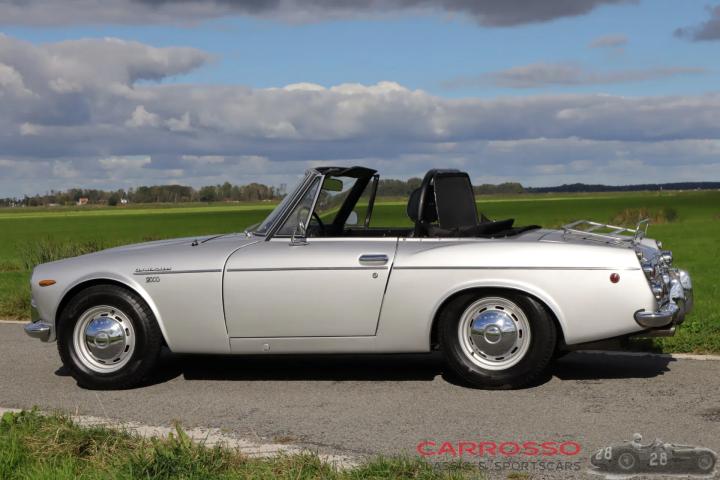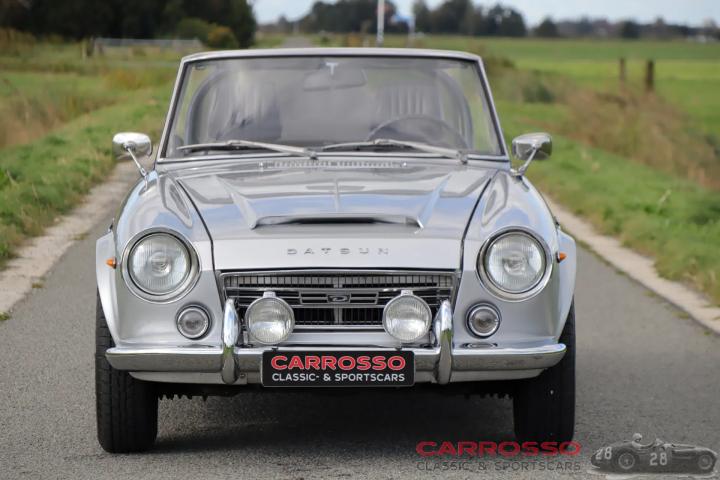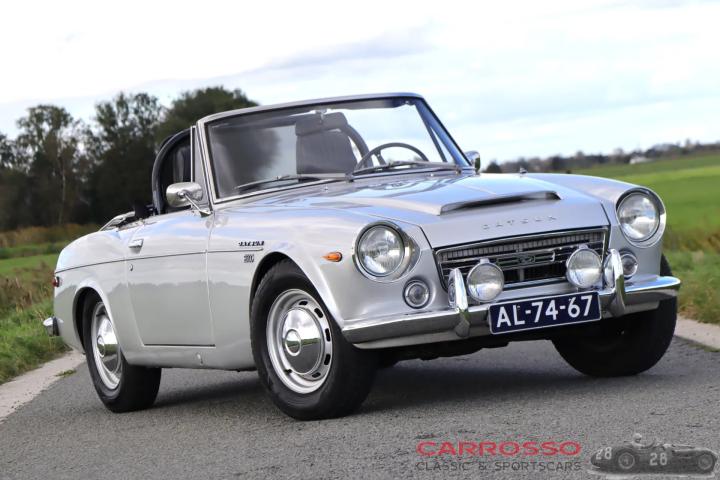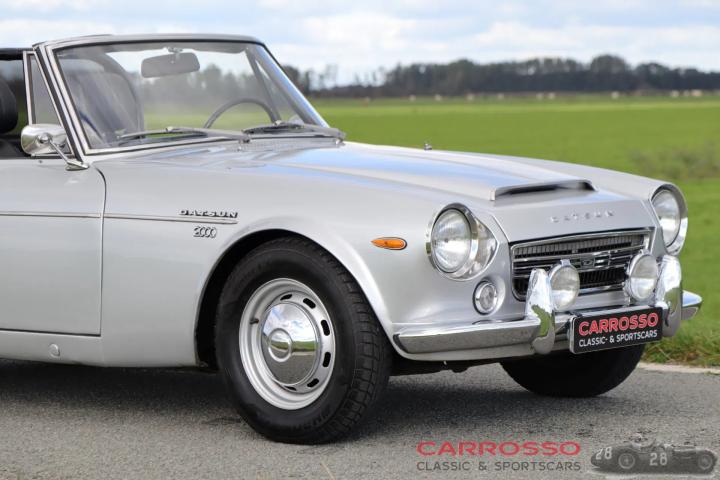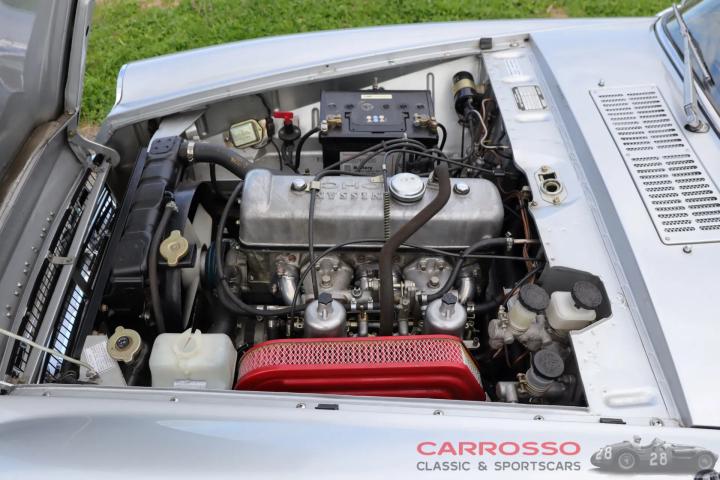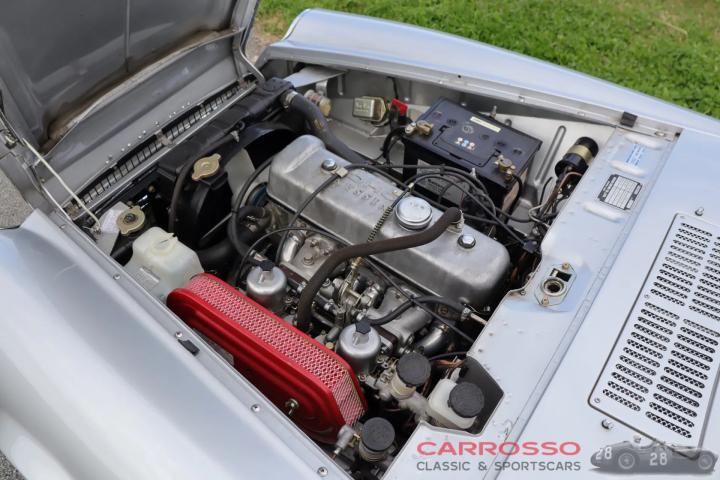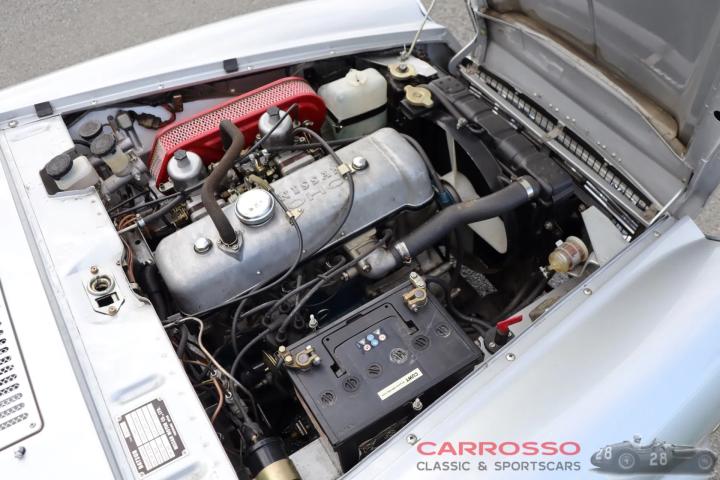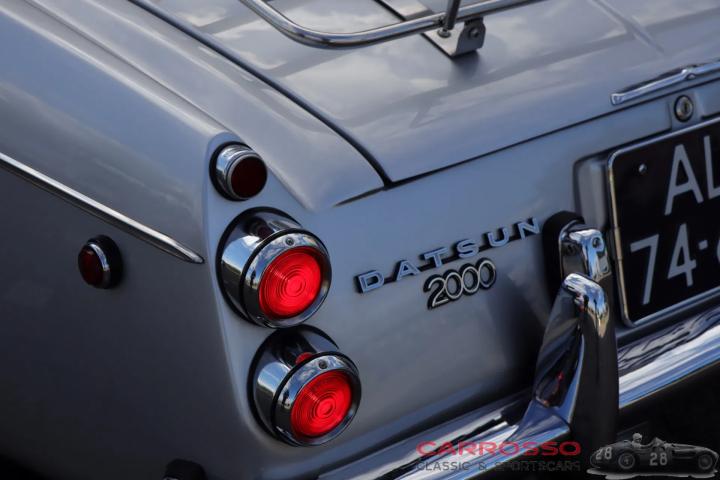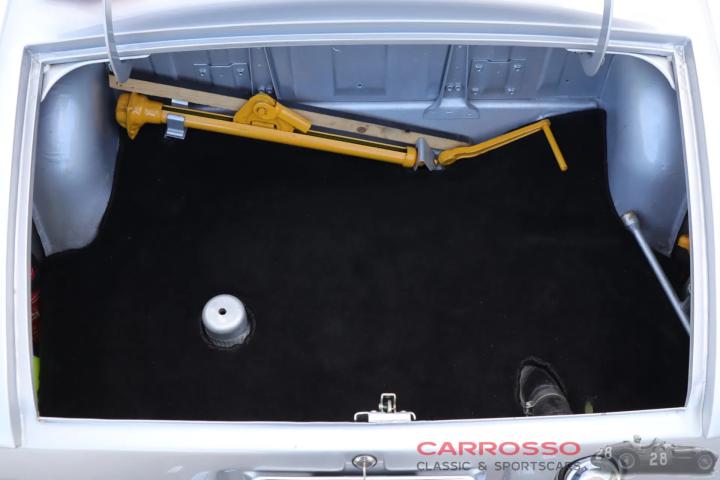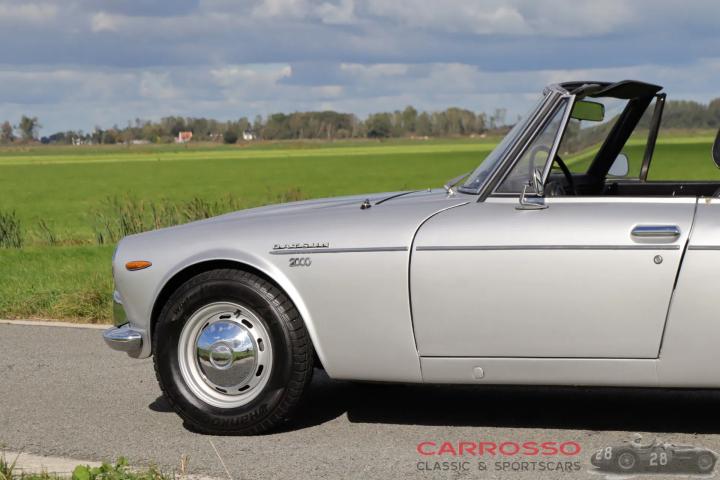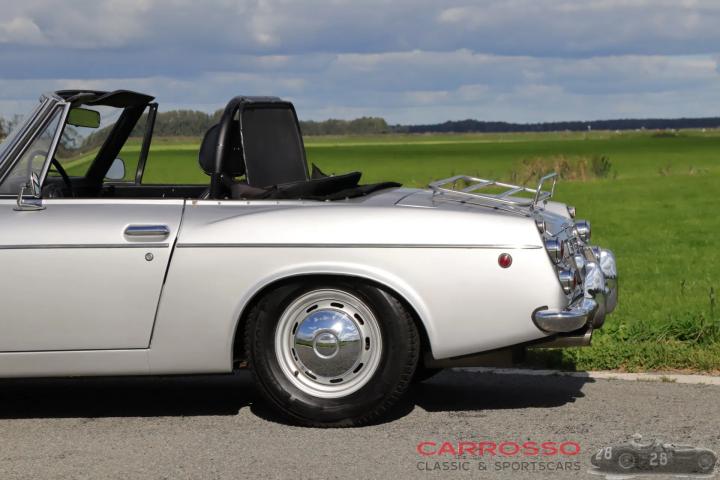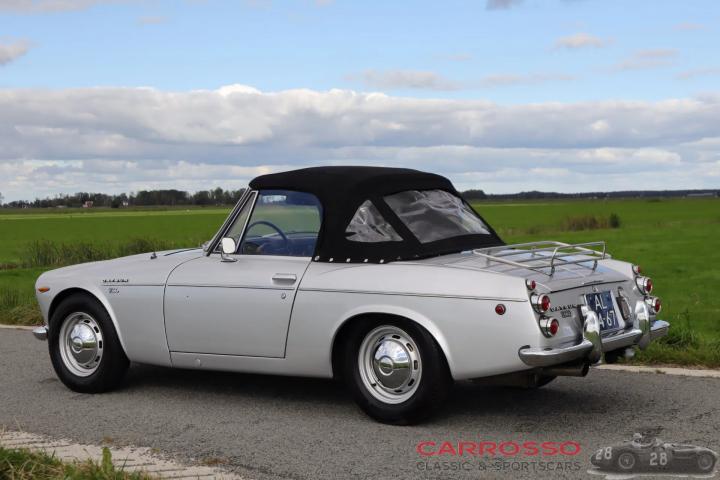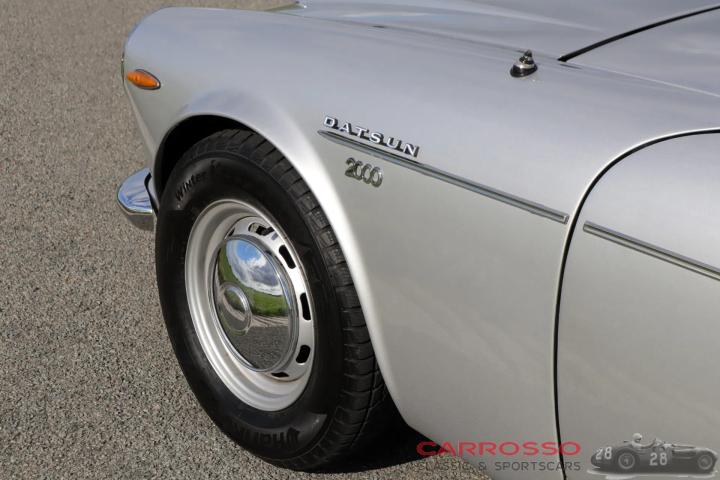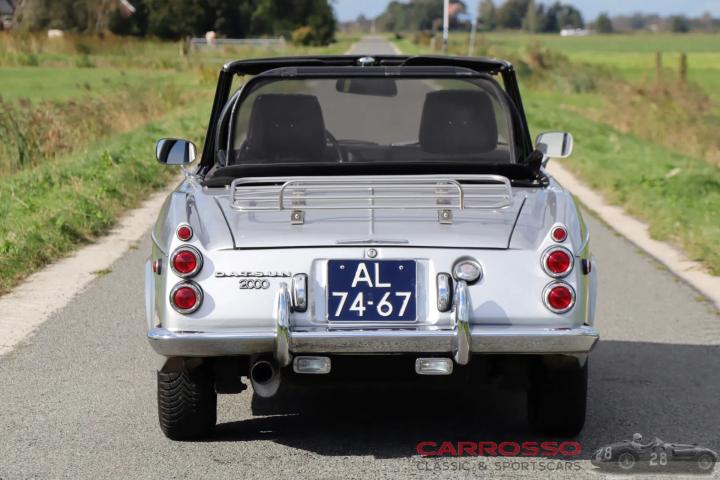1969 Datsun Fairlady 2000 Sport Roadster SRL311
€ 29950

|
Body
|
Convertible
|

|
Transmission
|
Manual
|

|
Exterior Color
|
Silver metallic
|

|
Upholstery
|
Vinyl
|

|
Steering
|
Lhd
|
See for information in English down below
Datsun Fairlady 2000 1969
- Krachtige 2-liter motor met dubbele carburateurs
- Handgeschakelde 5-versnellingsbak
- Rolbeugel en windscherm
- Bagagerekje
- Hella verstralers
- Terratrip rallycomputer
- Roestvrijstalen uitlaat
Een van de eerste Japanse sportauto's op de Europese markt: de Datsun Sports, beter bekend als Fairlady. Het betreft hier de meeste krachtige 2000 uitvoering met een 2-liter motor, goed voor 135 pk. Een hoge funfactor gecombineerd met Japanse betrouwbaarheid. Hij is gebouwd in 1969 en in 1995 geïmporteerd naar Nederland. In bezit van de huidige eigenaar sinds 2009, die de auto met liefde onderhouden heeft. Ook werd de Datsun gebruikt voor rally's, waar hij zich uitstekend voor leent. In het verleden is de auto volledig gerestaureerd, en dat is te zien. Uitgevoerd in de grijze kleurcode '666' met Hella verstralers en veel chroomwerk is het een fraaie verschijning om te zien. Het interieur is voorzien van zwart leder en uitgerust met verwarming, een Terratrip rallycomputer, rolkooi en windscherm. De motorruimte is droog en netjes. Het is een lust om mee te rijden: wendbaar, snel en licht. De 2-liter motor met 135 pk laat zich bedienen door de handgeschakelde 5-versnellingsbak. De roestvrijstalen uitlaat genereert een mooi rauw en zwaar geluid. Praktisch, snel en een echte rijdersauto voor zowel rally's als voor hobby.
Algemene informatie over de Datsun Sports Fairlady
De Datsun Sports Fairlady werd geproduceerd vanaf 1959 en moest de concurrentie aangaan met de Britse en Italiaanse sportauto's van merken zoals Alfa Romeo, MG en Triumph. Van de 1600-serie werden de meeste exemplaren gebouwd. In 1967 werd de krachtigere 2000-serie met 2.0-liter motor geïntroduceerd. Mede door een hoger belastingtarief in Japan zijn deze serie aanduidend minder gebouwd; ongeveer 15.000 exemplaren. De motor werd standaard gekoppeld aan een handgeschakelde 5-versnellingsbak, wat voor die tijd vooruitstrevend en vrij bijzonder was. De auto werd geadverteerd met de mededeling dat hij aanzienlijk goedkoper was dan zijn concurrenten. Hij won prijzen in zijn klasse, terwijl de prijs het laagst was. In Australië was de auto populair, mede doordat daar geen emissieregels van toepassing waren. De Sports Fairlady werd opgevolgd door de 240Z.
Datsun Fairlady 2000 1969
- Powerful 2-litre engine with twin carburettors
- 5-speed manual transmission
- Roll bar and windscreen
- Luggage rack
- Hella spotlights
- Terratrip rally computer
- Stainless steel exhaust
One of the first Japanese sports cars on the European market: the Datsun Sports, better known as Fairlady. This is the most powerful 2000 version with a 2-litre engine, good for 135 hp. A high fun factor combined with Japanese reliability. It was built in 1969 and imported to the Netherlands in 1995. Owned by the current owner since 2009, who has lovingly maintained the car. The Datsun was also used for rallies, for which it is excellent. In the past, the car was fully restored, and it shows. Finished in the grey colour code ‘666’ with Hella spotlights and lots of chrome work, it is a beautiful sight to behold. The interior has black leather and is equipped with heating, a Terratrip rally computer, roll cage and windshield. The engine compartment is dry and tidy. It is a joy to drive: agile, fast and light. The 135-hp 2-litre engine is controlled by the 5-speed manual gearbox. The stainless steel exhaust generates a nice raw and heavy sound. Practical, fast and a real driver's car for both rallies and hobby.
General information about the Datsun Sports Fairlady
The Datsun Sports Fairlady was produced from 1959 and had to compete with British and Italian sports cars from brands such as Alfa Romeo, MG and Triumph. Most of the 1600 series were built. In 1967, the more powerful 2000 series with 2.0-litre engine was introduced. Partly due to a higher tax rate in Japan, these series were built indicatively less; about 15,000 units. The engine was mated to a 5-speed manual transmission as standard, which was progressive and quite special for the time. The car was advertised as being significantly cheaper than its competitors. It won awards in its class, while the price was the lowest. The car was popular in Australia, partly because no emission regulations applied there. The Sports Fairlady was succeeded by the 240Z.
